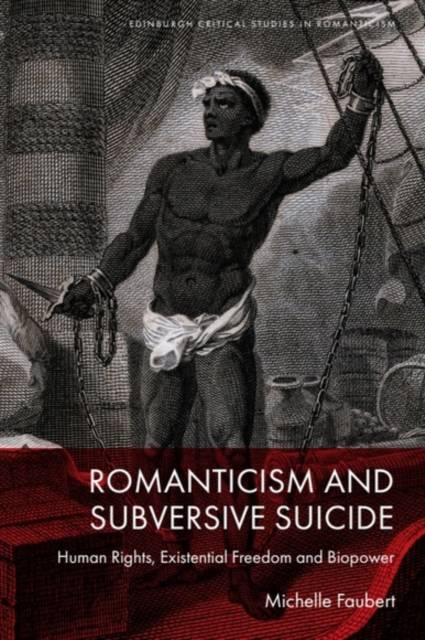
- Afhalen na 1 uur in een winkel met voorraad
- Gratis thuislevering in België vanaf € 30
- Ruim aanbod met 7 miljoen producten
- Afhalen na 1 uur in een winkel met voorraad
- Gratis thuislevering in België vanaf € 30
- Ruim aanbod met 7 miljoen producten
Zoeken
€ 201,45
+ 402 punten
Omschrijving
Romanticism and Subversive Suicide: Human Rights, Existential Freedom and Biopower traces the roots and expression of the literary theme of subversive suicide in the British Romantic era through key texts from different genres, from novels to letters, and poems to plays. A range of commentaries on suicide - including newspaper reports, coroners' inquests, religious tracts, sermons, medical studies, and legal texts - reveals the existence of a distinctly Romantic-era suicide debate, the fervour of which reflects the rise of biopower, as defined by Michel Foucault, to which suicide was the ultimate threat. This debate features a spirited defence of Enlightenment ideas proclaiming the Western liberal subject to be existentially free, as well as the broad cultural influence of the British slave trade, which shaped both national awareness of what it meant to be a subject and the definition of the human at the time
Specificaties
Betrokkenen
- Auteur(s):
- Uitgeverij:
Inhoud
- Aantal bladzijden:
- 296
- Taal:
- Engels
- Reeks:
Eigenschappen
- Productcode (EAN):
- 9781399527538
- Verschijningsdatum:
- 30/04/2025
- Uitvoering:
- Hardcover
- Formaat:
- Genaaid
- Afmetingen:
- 156 mm x 234 mm
- Gewicht:
- 594 g

Alleen bij Standaard Boekhandel
+ 402 punten op je klantenkaart van Standaard Boekhandel
Beoordelingen
We publiceren alleen reviews die voldoen aan de voorwaarden voor reviews. Bekijk onze voorwaarden voor reviews.








